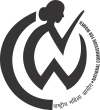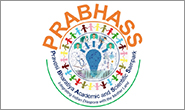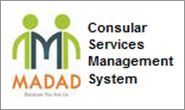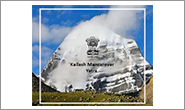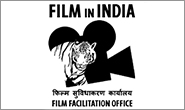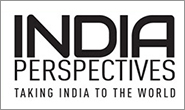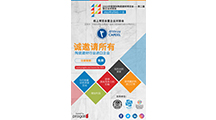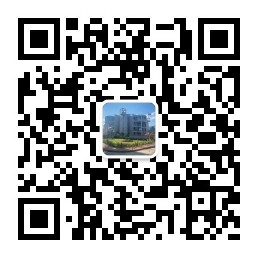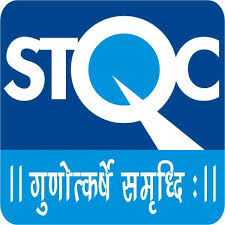STATEMENT BY MS.SMRITI ZUBIN IRANI, HON'BLE MINISTER FOR HUMAN RESOURCE DEVELOPMENT AT THE MINISTER'S ROUND TABLE TITLED "INCLUSIVE AND RELEVANT LIFELONG LEARNING" AT THE INTERNATIONAL CONFERENCE ON ICT AND POST-2015 EDUCATION
05/24/2015
Excellencies,
Distinguished Guests,
Ladies and Gentlemen,
I am indeed delighted to be in the lush and beautiful coastal city of Qingdao.
At the outset, my greetings and gratitude to our gracious hosts for their warm hospitality and my acknowledgement and appreciation of their initiative together with UNESCO in hosting this timely event.
The freshly minted Incheon Declaration speaks of inclusion and equity in and through education as cornerstones of a transformative education agenda. It commits to promoting quality lifelong learning opportunities for all, in all settings and at all levels of education.
And contextually, it speaks also of harnessing information and communication technology to strengthen education systems, knowledge dissemination,information access, quality and effective learning, and more effective service provision.
In such vision, ICT is essential, indeed critical, as we seek to improve quality and enhance reach, both for learners in formal and non-formal settings and as a tool to support learning programs for adults.
India boasts a global reputation in ICT expertise. Let me touch upon some of our initiatives and outcomes.
A National Mission on Education through ICT systematically provides connectivity to universities and colleges, linking them to the National Knowledge Network.
Our National Digital Library with IT broadband in schools, colleges and universities will ensure availability of free and world class educational resources to every learner in India.
A National Repository of Open Educational Resources offers digital resources in different languages to serve students and teachers alike.
ICT-enabled SARANSH helps schools to analyze and redress learning outcomes of students in Grades X and XII so as to improve overall quality.
SHAALA DARPAN or a Mirror to a School, where mobile technologies will be leveraged to connect parents to schools, enabling them to monitor the progress of their children.
A mobile based IVRS technology will obtain real time data on the performance of our mid-day meal programme cover over 110 million children per day in our schools.
SWAYAM or India's own MOOC platform will provide cutting edge courses which will drive down the cost of universityeducation, while making higher education accessible to millions.
India has developed virtual laboratories; we have spoken tutorials, and a very comprehensive enabler for ‘Design’ under the e-Kalpa Project. This has as its objective the creation and development of new learning environments related to skills and creativity in ‘design’, including but not limited to the fields of arts, crafts, culture and the environment. The greatest numbers of learners, including professionals are using the courses offered by this Project to enhance their knowledge and creativity.
Likewise, a programme is underway to improve the skills of technical teachers under the T10KT project,where teachers are trained simultaneously in different parts of the country using ICT. This has met with resounding success, and is growing exponentially.
UDAAN or the FLIGHT for our girl child is a recently added mobile-learning feather to our cap, being a platform to provide guidance and training to girls as they set out to prepare themselves for the rigours of engineering entrance examinations . Inclusion and equity are both ensured as our girls freely access study material through an on-line portal and through their mobile devices provided to them by the Government.
There are also plans to set up a National Academic Depository wherein all academic records such as degrees, diplomas, certificates will be available in a unified database which can be accessed by educational institutions in an anytime-anywhere mode. This will obviate the need for students and job seekers to carry physical copies of their certificates, and is clearly poised to be a game changer as we seek to integrate technology and democratize education across sectors.
And finally, and most importantly, I would like to speak of our efforts and commitment to draw in themost disadvantaged into this technology sweep , especially those with disabilities. The New Delhi Declaration on Inclusive ICT for Persons with Disabilities adopted in November 2014 has presented an invaluable menu of options for empowering persons with disabilities by providing greater access to education, information and knowledge using ICT .The Declaration resonates with and supports our national effort for a "Digital India" which would bring ICT to the doorstep of every Indian citizen, including those with disabilities.
Ladies and Gentlemen,
We are at a critical junction. The roadmap for global education until2030, Education 2030, that we have agreed upon at Incheon seeks to mobilize all nations and partners to implement the post-2015 Education agenda, and propose ways for its coordination,financing and monitoring – globally, regionally and nationally – to ensure equal educational opportunities forall.
For this, we need new technologies of communication - from the individualized computer assisted learning systems to the more mass directed radio and television, which offer an unparalled opportunity to reconsider conventional educational and learning practices and institutions.
But we will need to address the divides in terms of access, equity, and resources that continue to be the main issues that educators will have to address as the needs of the learning community in the new social, economic and political contexts will change.
To this end, we support the call to join forces and share resources to create equitable, dynamic and sustainable student-centric digital learning ecosystems. India stands ready to offer her expertise, as also her best practices and hard lessons, seeking to benefit equally from the expertise of others in a collaborative endeavour, as together we journey onwards and forwards to fully unleash the potential of ICT in line with the 2030 education agenda.
We would also need to be mindful that ICT may be used in a blended approach, as an alternative or a complementary means to the teacher and classroom when striving for the objectives of universal access to basic education and skills development.
Information and communication technology application constitute an absolute necessity, given huge dispersed populations in the world; inadequate resources and our aspirations for a sustainable world. ICT offer us the chance to telescope decades of knowledge and experience by providing us with the advantages of high speed delivery with no dilution in quality; wide reach;individualization of learning in varied contexts; and interactivity.
We no longer have a choice. Ladies and gentlemen, it is no longer an “if” but “how” to deploy the technologies optimally. And, that should be our firm resolve, going ahead.
Thank you.
................................................................
Hon'ble Minister for Human Resource Development,Ms. Smriti Zubin Irani speaking at the Minister's Round table titled,"Inclusive and relevant lifelong learning" at the international conference on ICT and Post-2015 Education, 24 May 2015, Qingdao, China
















